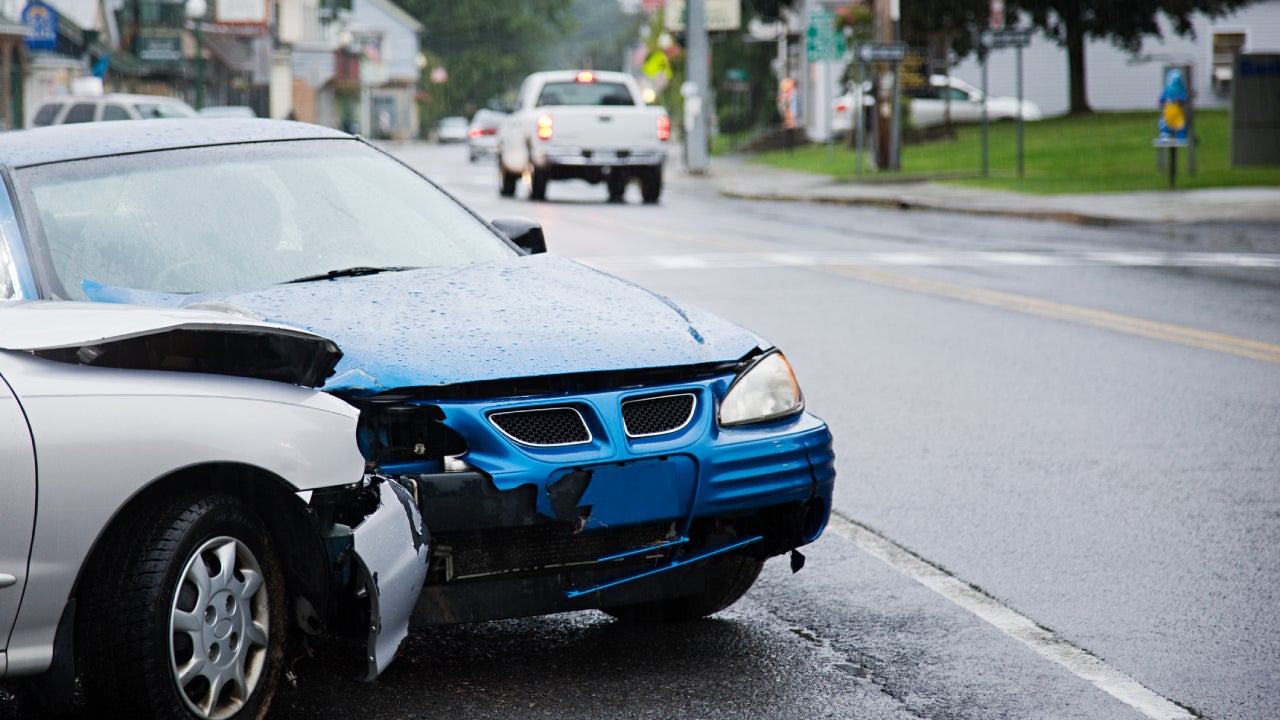New York car insurance laws

New York car insurance laws are clear on what insurance is required to drive legally on public roads in the Empire State. Like most states, New York drivers need liability insurance, which pays for damage and injuries to others if you cause an accident. But New York is also a no-fault state, meaning you must also have personal injury protection coverage. In addition, drivers need uninsured motorist coverage, in case they are involved in an accident with any of the nearly 11 percent of drivers who are on the road illegally without coverage. While you can’t buy a policy that doesn’t meet these minimum requirements, understanding state laws can help you decide if you need more coverage than the state mandates.
Car insurance laws in New York
New York is a no-fault state, which means that in addition to liability insurance, drivers need to purchase personal injury protection (PIP). The state also requires uninsured motorist coverage. Legal requirements for minimum car insurance in NY are as follows:
- $25,000 bodily injury liability per person and $50,000 death liability per person
- $50,000 bodily injury liability per accident and $100,000 death liability per accident
- $10,000 property damage liability per accident
- $50,000 personal injury protection (PIP)
- $25,000 uninsured motorist bodily injury per person
- $50,000 uninsured motorist bodily injury per accident
In August 2023, New York passed a new insurance law that requires insurers to include supplemental spousal liability coverage in all policies — unless the policyholder declines it in writing. Supplemental spousal liability, or SSL, coverage falls under the bodily injury liability portion of your insurance policy and kicks in if your spouse causes an accident that injures you, the policyholder.
Additionally, NY State car insurance laws require all motorists to carry proof of insurance while driving.
Note that these are the minimum requirements that your insurance policy must satisfy. You may, however, purchase additional coverage for increased protection.
Do I need a car insurance photo inspection in New York?
Until 2024, residents of New York State were required to complete a photo inspection, often called a CARCO inspection, of their vehicle in order to purchase a full coverage insurance policy, which includes collision and comprehensive coverage. As of May 15, 2024, these inspections are no longer mandatory and can be waived by the insurer. The inspections were determined to be optional based on the Auto Insurance Consumer Relief Act, signed into law by Gov. Hochul in 2023. This new law will remain in effect until October 1, 2027.
However, even though the requirement can be waived legally, it’s never a bad idea to keep current photos of your vehicle on hand, which could prove to be helpful evidence when filing an insurance claim, proving that the damage did not exist prior to the accident.
Liability insurance in New York
Liability car insurance covers damage and injuries sustained by another driver and their passengers. This type of coverage does not pay for the damage to your vehicle when you cause an accident, though. You may see New York’s required liability insurance coverage expressed as 25/50/10, which is shorthand for $25,000 of bodily injury liability per person, $50,000 of bodily injury liability per accident and $10,000 of property damage liability per accident.
While it’s a good place to start, the minimum New York state auto insurance requirements may not offer sufficient financial protection after a serious accident. Consider the property liability portion, for which the minimum is $10,000. If the other driver’s car was totaled and it was a fairly new or expensive vehicle, $10,000 might not be enough to replace it. Or consider the bodily injury minimum, which is $25,000. If a passenger in the other car suffers serious injuries requiring hospitalization and surgery, $25,000 in coverage might not cover all medical costs.
Many insurance experts recommend that you carry more than the minimum for liability insurance if possible. This way, you are much less likely to be caught in a bad financial situation following an accident.
Is New York a no-fault state?
New York is a no-fault insurance state. As such, the law requires drivers to purchase personal injury protection (PIP). With PIP coverage, you can file a claim against your own insurance policy if you are injured in an accident, regardless of who was found at fault. In at-fault states, you typically rely on the other driver’s bodily injury liability coverage to help pay for your medical bills.
PIP typically covers your medical expenses, lost wages, funeral expenses, if needed, and some additional costs. Required New York PIP coverage pays up to $50,000 per person, but you have the option to raise it for an additional cost.
Although it is a no-fault state, fault still exists in New York when it comes to property damage. The term no-fault applies only to medical expenses, injuries, lost wages and funeral expenses. If you were found at fault in an accident, you would still likely be responsible for paying for the other driver’s vehicle repairs and other property damage you caused.
Penalties for driving without insurance in New York
Driving without insurance in New York can result in serious consequences. Your insurance company must notify the Department of Motor Vehicles (DMV) if your policy lapses. If you no longer have insurance, you must turn in your vehicle registration and license plates to the DMV and refrain from driving. If you do drive, you could face the following penalties:
- Arrest or ticket
- Driver’s license and vehicle registration suspensions
- Fines
- Impounded vehicle
If you are driving without insurance and are in an accident in New York, the state may suspend your license and registration for at least one year, and you could face fines as much as $1,500, plus a $750 civil penalty to restore your driving privileges.
Additional auto insurance coverage options in New York
In addition to liability, PIP and uninsured motorist coverage, there are other coverage options that may benefit you. Costs for these types of coverage vary by insurer and can be impacted by factors such as the type of vehicle you drive and your driving record, among other things.
- Collision: This optional coverage helps pay for damage to your car following a covered accident with other vehicles or a stationary object.
- Comprehensive: Comprehensive covers non-accident-related mishaps, from a tree falling on your car in a windstorm to car theft or vandalism. It is not mandatory in New York State. Comprehensive and collision are good coverage options to have if your car is newer or a high-end model. For older cars with less value, it may not be as important.
- Medical payments: Optional in New York, medical payments coverage will augment other coverage, such as PIP, and help pay for medical costs incurred in an accident. These might include hospital stays, surgery, ambulance costs or other medical expenses.
- Gap coverage: If you have a new car and owe more on the loan than the vehicle is worth, gap coverage will help pay off the loan if your car is stolen or totaled. This coverage may be useful because your collision or comprehensive will only pay the depreciated value of the car.
- New car replacement: If your car is totaled or stolen and is two years old or less (or for some insurers, one year old or less), new car replacement coverage ensures that you will have enough to purchase a new car of the same value as your former car.
- Roadside assistance: Similar to a membership with AAA or another roadside assistance company, this will cover the cost of repairs or towing if your car breaks down on the road, you run out of gas or you have a flat tire. You can use it if you need a jumpstart or if you are locked out of your car.
- Rideshare: If you drive for a ridesharing company like Uber or Lyft, you need rideshare coverage. Your personal car insurance policy does not normally cover your car while driving for a rideshare company but rideshare coverage will.
Frequently asked questions
Why we ask for feedback Your feedback helps us improve our content and services. It takes less than a minute to complete.
Your responses are anonymous and will only be used for improving our website.






